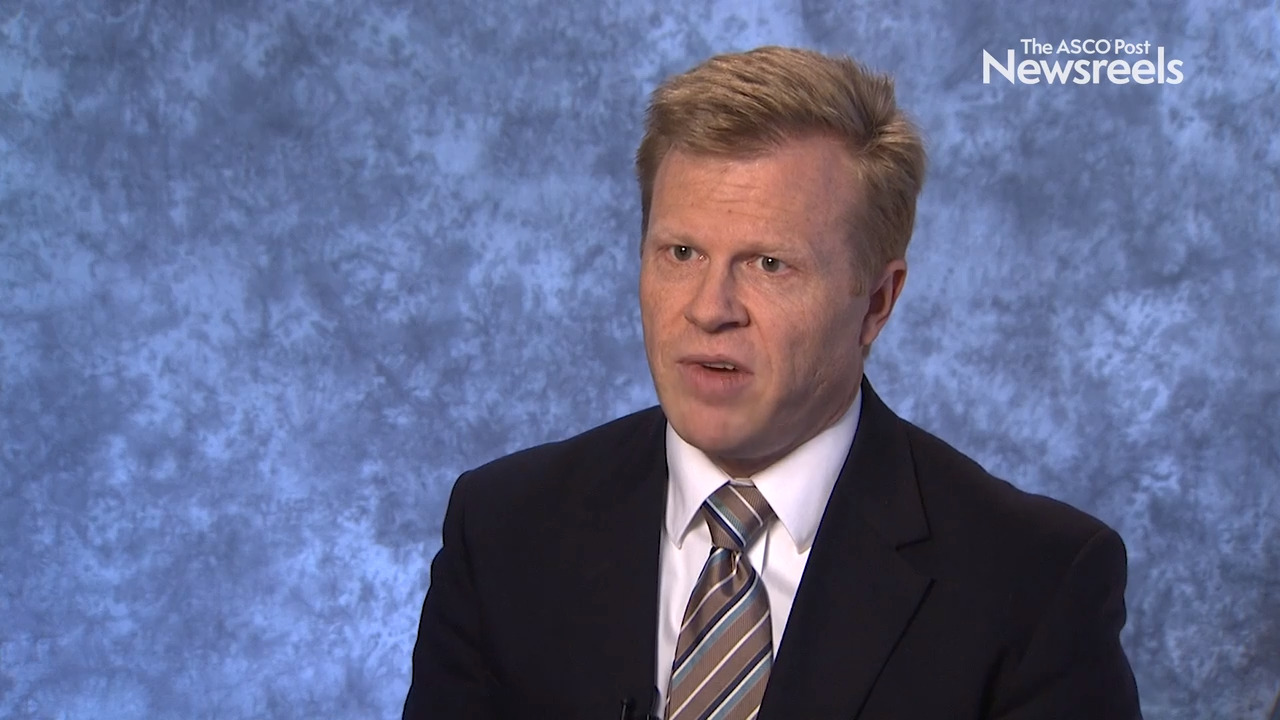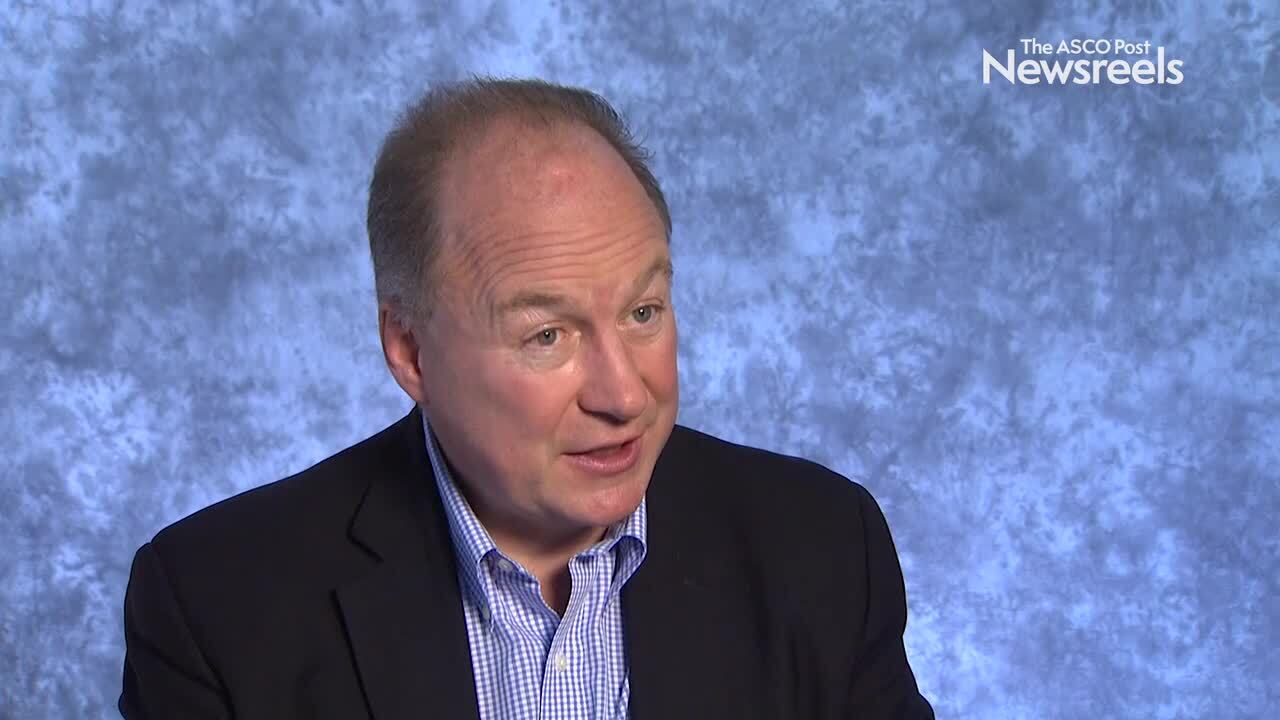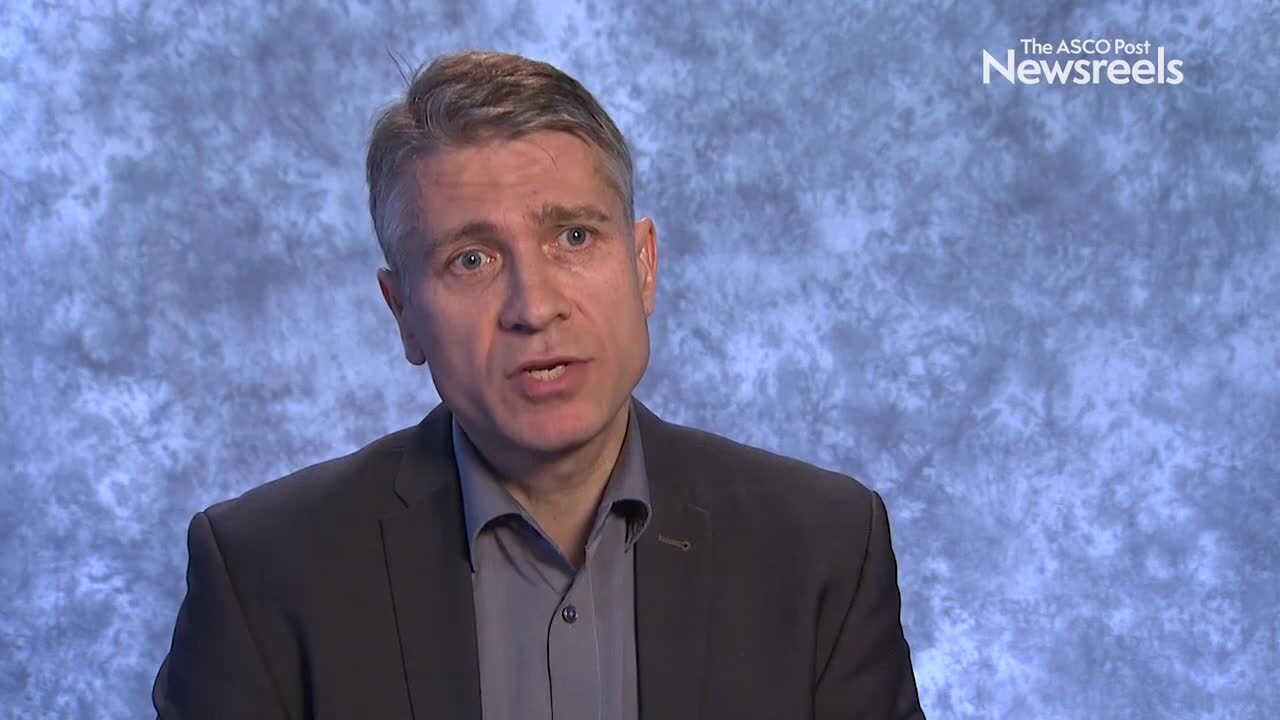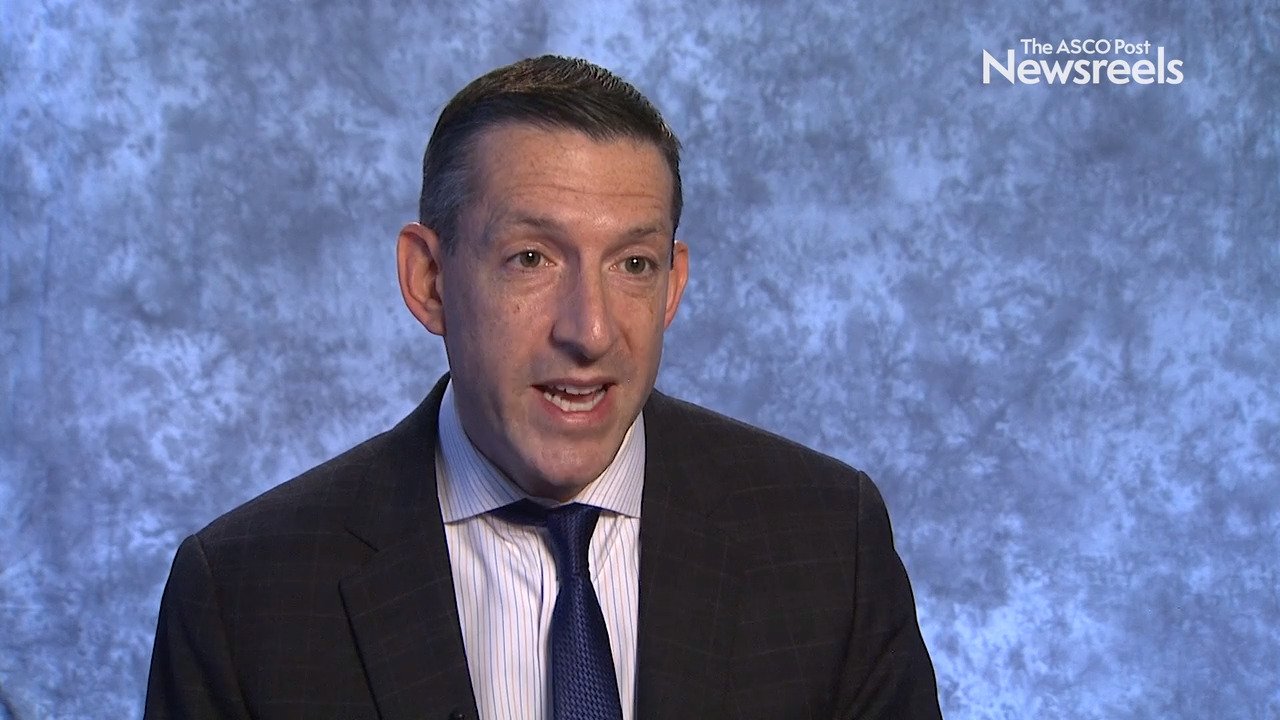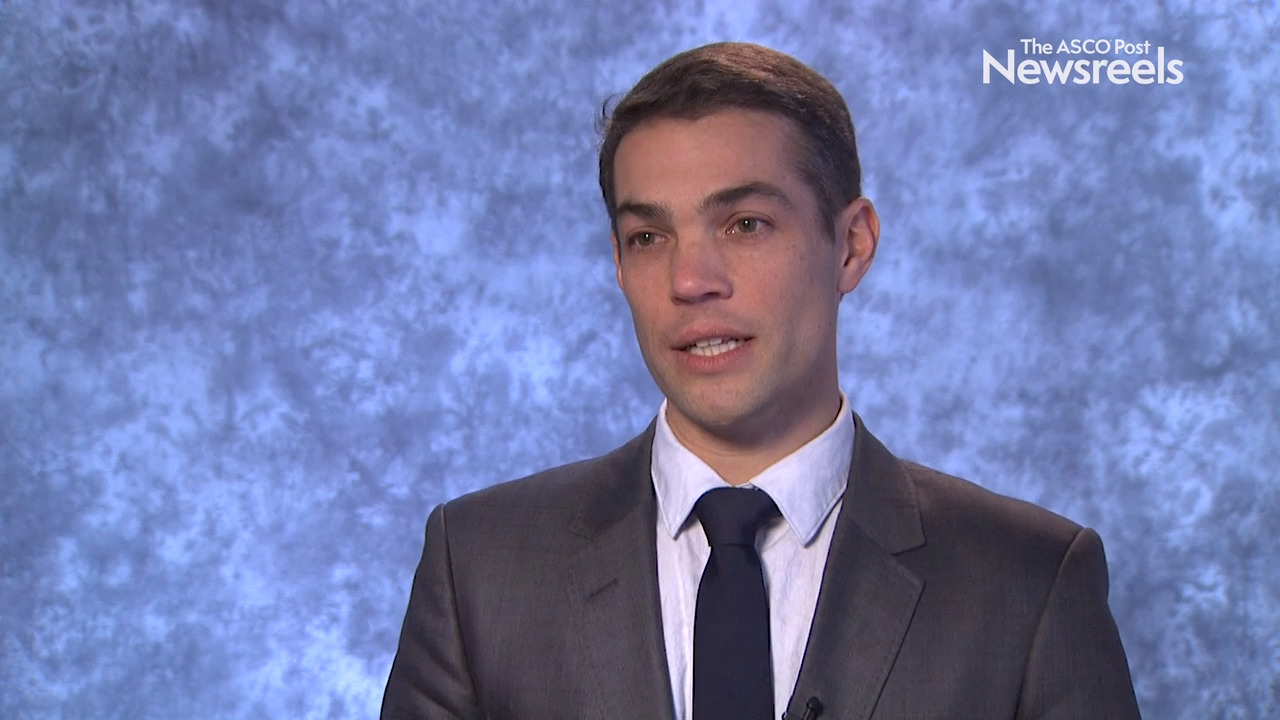Steven M. Horwitz, MD, on PTCL and CTCL: Trial Results on Cerdulatinib
2018 ASH Annual Meeting & Exposition
Steven M. Horwitz, MD, of Memorial Sloan Kettering Cancer Center, discusses phase IIa study findings on the novel SYK/JAK inhibitor cerdulatinib for relapsed/refractory peripheral T-cell lymphoma and cutaneous T-cell lymphoma (Abstract 1001).
Tait D. Shanafelt, MD, of Stanford University, discusses phase III study findings on ibrutinib-based therapy vs standard fludarabine, cyclophosphamide, and rituximab chemoimmunotherapy in untreated younger patients with chronic lymphocytic leukemia (Abstract LBA4).
Paul Richardson, MD, of Dana-Farber Cancer Institute, discusses updated results and the first report on progression-free survival for melflufen therapy administered to people with multiple myeloma that is refractory to daratumumab and/or pomalidomide (Abstract 600).
Andreas Burchert, MD, of the Philipps University of Marburg, discusses study findings on sorafenib as maintenance therapy after allogeneic stem cell transplantation for FLT3-ITD–positive acute myeloid leukemia.
Mikkael A. Sekeres, MD, of the Cleveland Clinic, discusses phase III study findings on luspatercept to treat anemia in patients with very low-, low-, or intermediate-risk myelodysplastic syndromes with ring sideroblasts who require red blood cell transfusions (Abstract 1).
Saar I. Gill, MD, PhD, of the University of Pennsylvania, discusses findings from a prospective clinical trial on the high response rate in patients with chronic lymphocytic leukemia who received a combination therapy of CAR T cells plus ibrutinib (Abstract 298).
